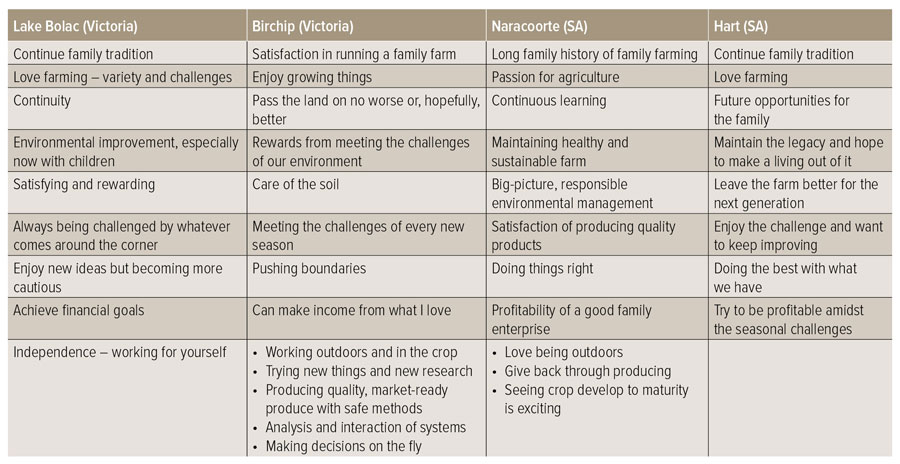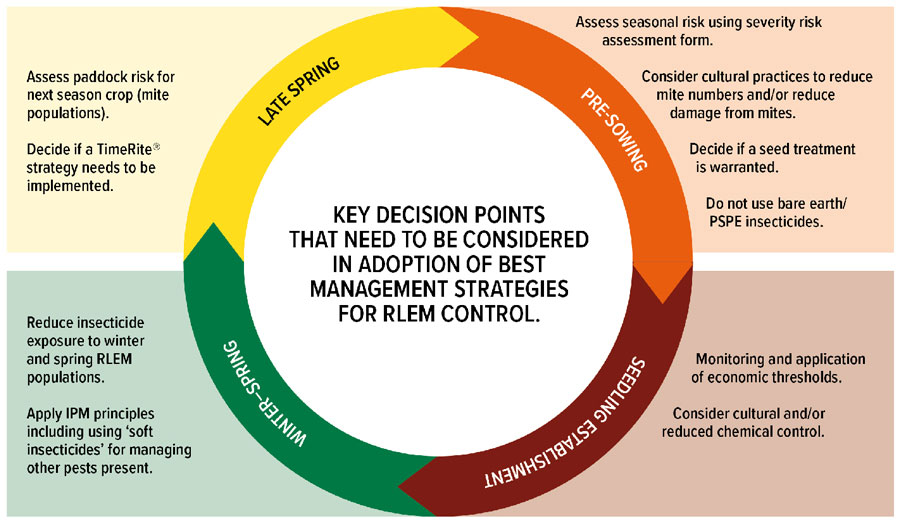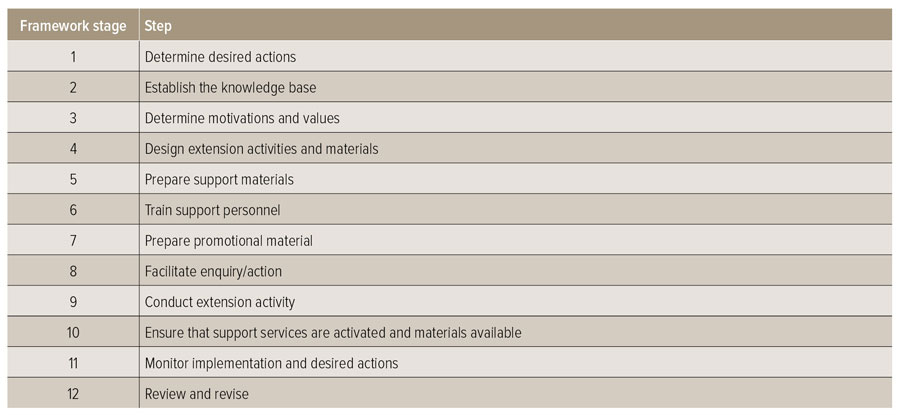Key points
- Messages about insecticide resistance management and good insecticide stewardship need to be aligned with the value drivers that underpin farming communities
- Key values that drive growers’ decision-making are responsibility for land and environment and pride in quality products
- Insecticide resistance management needs to have a foundation in long-term planning rather than short-term decision-making
Although resistance management and integrated pest management (IPM) practices are widely acknowledged as a key to industry sustainability, the adoption of these practices has been low. Innovative social science research is now aiming to change this by addressing growers’ personal values.
With GRDC investment, the Birchip Cropping Group (BCG) together with the South Australian Research and Development Institute (SARDI), C-Qual Agritelligence and cesar are leading a project to explore how messages conveyed about insecticide resistance management – and more generally about good insecticide stewardship – could be aligned with farming community values. A growing body of research indicates that individual values and personal motivators have a significant and often unconscious influence on growers’ decisions, as information alone has been insufficient to drive practice change needed to address rising pesticide resistance.
“Unpacking grower values is fundamental to determining people’s motivation to change practices,” says the project’s manager, Kelly Angel.
“Once we are clear about these values we can design better information resources and customise activities to encourage practice change,” she says.
“Growers operate in a complex and changing environment and we need to take stock of this when we consider how decision-making may be influenced:
- The climate is variable, making it difficult to predict a pest outbreak and increased business risk.
- Grain enterprises are becoming increasingly large and mechanised and this leads to the need to improve the efficiency of operations.
- Export requirements for grain quality are extremely stringent, with zero tolerance for live invertebrates.
- Uptake of Insecticide Resistance Management Strategies (IRMS) is slow.
- There is an increased reliance on seed dressings, which are often neonicotinoids. Stronger restrictions are likely to be imposed on neonicotinoid use in the future and restrictions will follow on other chemical classes.”
Insights into values
To obtain insights into the values driving growers’ decisions, a key question was addressed: why do growers love farming?
Two activities were undertaken to obtain these insights. The first was a series of focus groups with selected groups of growers across the southern region, and the second was a short survey by Cultural Dynamics Strategy & Marketing Ltd to reveal what they refer to as ‘Values Modes’. The aims were to capture values that underpin decision-making and classify people into behavioural groups (Table 1).
“Four key reasons for farming emerged: responsibility for land and environment; continuity of farming and family tradition; rewards and demonstration of success; and passion for agriculture and pride in quality products,”
Ms Angel says.
“Discussion of the need for practice change on-farm has commonly been focused around increasing financial returns, such as through yield increases or greater efficiencies. This is important, but for some growers, may not be the primary trigger for stimulating interest in a new concept or motivating practice change.”
Table 1: Summary of growers’ key motivators to farm expressed by participants at four focus groups.

Source: C-Qual Agritelligence and BCG
Table 2: Simplified extension framework.
Source: C-Qual Agritelligence
Designing extension framework
Contemporary decision-support information and activities are now being underpinned with grower values at the foundation (Step 3, Table 2).
“Each part of the framework plays an important role in leading to a point where growers can make a values-based and rationality-based commitment to implement the desired behaviours. When the necessary support systems are in place to guide the implementation, the ultimate outcome is greater potential of achieving change that will be maintained and becomes part of normal practice,” Ms Angel says.
Information and activities
The project has generated several best management practice guides for significant pests and delivered several reactive sessions at field days, utilising cesar and SARDI experts presenting on topics requested by growers. It has also produced a series of podcasts. Resources and activities have been arranged to provide delivery mechanisms that suit different styles of learning or accessing information.
“BCG has also focused on increasing awareness of the challenges that come with maintaining the ‘status quo’, which has led to growers thinking more about why they are doing things rather than just what they are doing,” Ms Angel says.
Figure 1 is an example of the decision points that need to be considered in the adoption of best management strategies; in this case for redlegged earth mite control.
Decision influences
While this project included focus groups and surveys to investigate grower value drivers, adviser value drivers and challenges remains to be explored. Adoption of change is also influenced by long-term sustainability issues. These include seasonality of pests, limited options for management, and demands for high-quality products with minimal, if any, damage from insects or the presence of live insects in produce. Extension materials need to acknowledge these challenges, as well as recognise that motivators other than profit, such as responsibility for land and environment and pride in quality products, are also behavioural drivers to be considered within extension frameworks.
“Pest management practices are lagging behind approaches we have for weed management. We have fewer tools and there are still research gaps to be filled,” Ms Angel says.
Figure 1: Extract from the Redlegged Earth Mite Best Management Practice Guide – Southern Region showing the key decision points that need to be considered in adoption of best management strategies and best insecticide stewardship.

Source: GRDC
More information: Dr Jessica Lye, 0401 555 567, jlye@cesaraustralia.com


























































